Today is my first day in Ferrara, the ancient walled city located in Emilia-Romagna, northern Italy just above Tuscany. It is situated 50 km northeast of Bologna, on the Po di Volano, a branch channel of the main stream of the Po River. The town has broad streets and numerous palaces dating from the 14th & 15th century, when it hosted the court of the house of Este. For its beauty and cultural importance it has been qualified by UNESCO as World Heritage Site. I will be spending the month of July 2008 in this beautiful walled, Medieval City, studying Architecture (see my previous post) at the top ranked University in all of Italy. I am staying off campus, but I get a bike when I arrive, and will ride back and forth between campus and the Residence. It is apparently a 10 minute bike ride which is very European and very energy efficient, as well as good exercise.
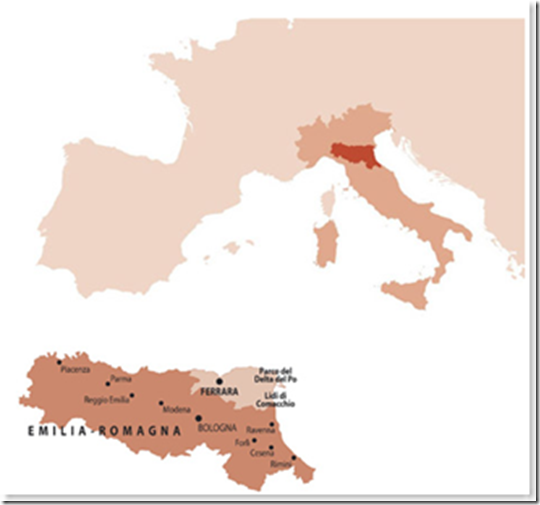
The Walls
Arriving in Ferrara the Walls around this historic City constitute your first contact with the city: a red curtain of brick encircles it, almost without interruption for nine kilometers, constituting one of the oldest and most impressive defensive systems of the Middle Ages and the Renaissance. Within these walls you can find all of the techniques of defence used in the 1400s and 1500s: city gates, bastions, large towers, gun slots and embrasures. Now these walls have been transformed into a place for meeting friends, practicing sport and recreation, with paths for cycling and walking.
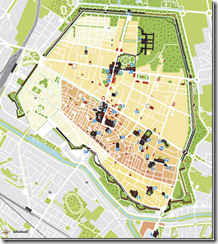
This is a map of Ferrara and you can see the outlines of the wall around the city which is reportedly 9 kilometers long.
Picture on left:The city walls and one of the gates into the City of Ferrara
Picture on right: Castello Estense de Ferrara has a working drawbridge.
Palazzo dei Diamanti is one of the most famous palaces in Italy, as well one of the most influential examples of Renaissance European architecture.
Designed by Biagio Rossetti, it was built starting from 1493 by order of Sigismondo d'Este. The most striking features is the bugnato of the exterior walls: it consist of some 8,500 white (with pink veins) marble blocks carved to represent diamonds, hence the common name "Diamanti". The palace today houses the National Gallery of Art.
Wooden coffered ceiling of the colonnade with detail of a beautiful iron chandelier
Iron Gate in colonnade
Below are some of the tables in the market in the central piazza. 
I wanted to buy a bunch of the sunflowers for my room, but two things were against me: 1. I was riding my bike and I am not yet as adept as the Italians in navigating the busy streets packed down with goods, and 2. I did not pack the proper vase in my suitcase to accommodate 3 foot long stems. So I reluctantly passed. I had to be content just to feast my eyes on them.
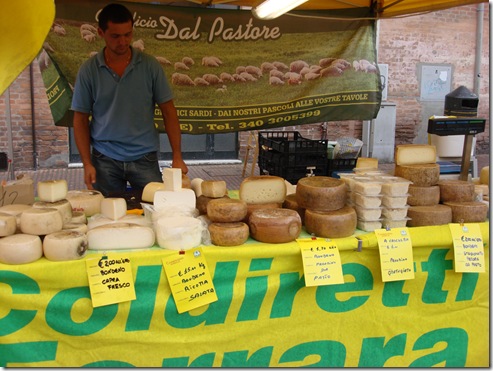
I bought some cheeses from this vendor after tasting slim slivers that he cut off for me.
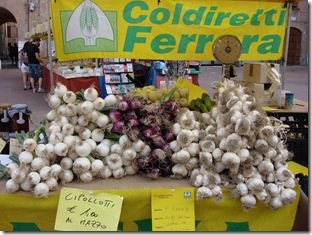

The cantaloupes in the picture on the right were so fragrant that I had to buy one.
After strolling through the market we found a restaurant with an exterior patio for supper and enjoyed some of the good Italian red wine. I had a dish of pasta laced with asparagus and a sauce of 4 cheeses.

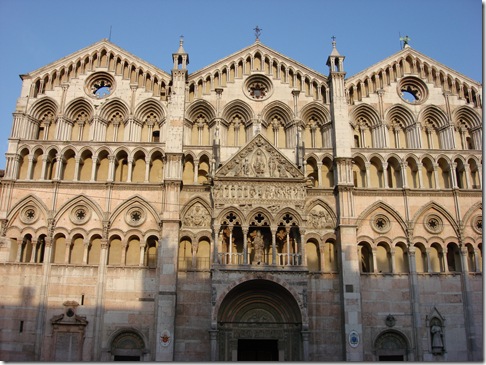
A view of the facade of the cathedral facing the restaurant where we had supper.

A view of the castle fortress which is surrounded by a moat ( A deep trench around the rampart of a castle or other fortified place, sometimes filled with water ) which faced the restaurant where we had supper.
It was a wonderful end to my first day in Ferrara.


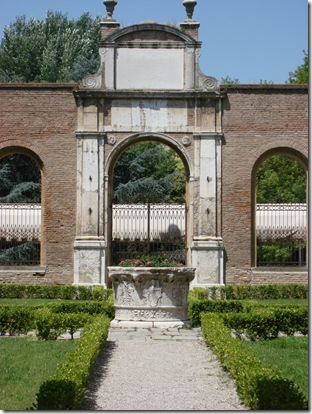
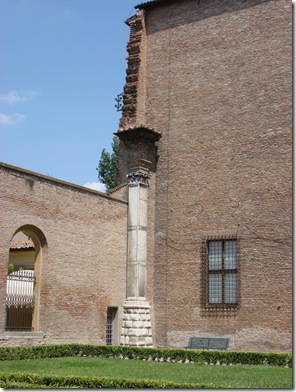


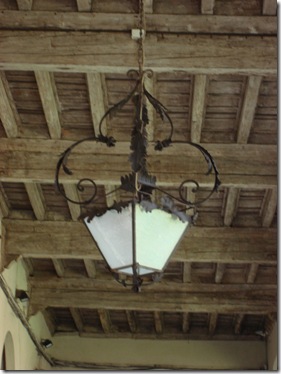
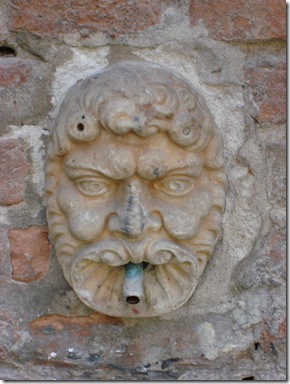

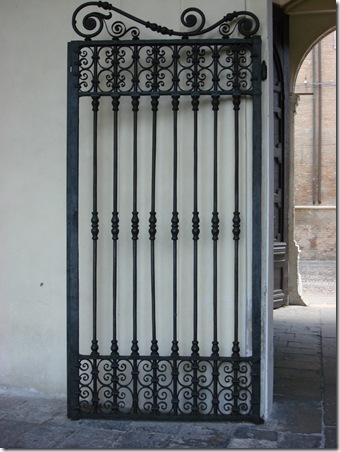
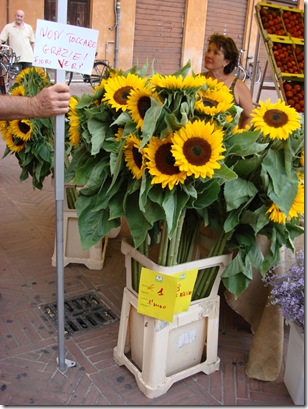
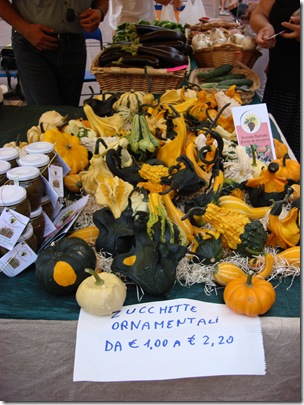
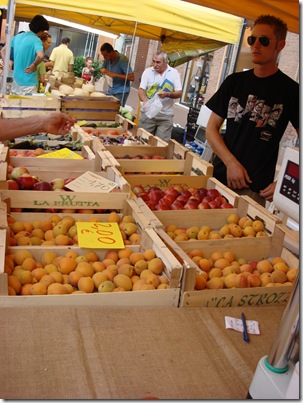
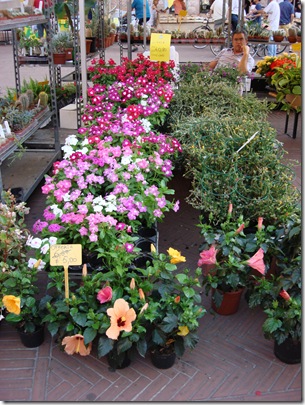

0 comments:
Post a Comment